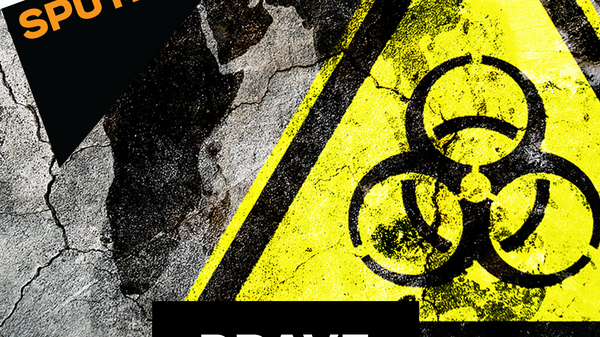Brecht Jonkers, a historian and journalist joins the program.
Brecht explains that Iran has the longest continuously existing history of any State. The Old Persian Empire was the largest empire the world had ever seen up until that point. At one point, Persia was the first global superpower, but it was surprisingly tolerant to other cultural and ethnic groups. “This sharply contrasted with the empires that existed in Mesopotamia and the Middle East before that. The Persians were special in that way. They founded a highly tolerant multi-lingual empire. For example, the Persians were the ones who allowed Jews to return to Palestine after the Babylonian exile. They were very well known for adapting to local customs, for basically being a multi-lingual and multi-religious tolerant people.”
It seems as though we westerners might have something to learn from the Iranians in terms of how to keep empires together despite linguistic and religious diversity. Brecht explained: “The Persians always had a very centralized bureaucracy in which accountability was prioritized… It was a bureaucratic nightmare to have this huge empire to keep in check, but they did it by having a very efficient system of government. …The highly centralized government knew exactly where the revenues were and how they could harvest the maximum amount of taxes without putting too much pressure on the poor. They combined a tolerant multi-cultural and multi-racial society with a very centralized bureaucracy under the Shah, who at that time was the Emperor of Persia. To keep the empire running they built a very efficient network of roads and communication systems…”
It would be difficult to say that Iran today is a multi-racial and multicultural tolerant society. However, Brecht explains that the Islamic Republic of Iran which has only been around since 1979 has adopted the old system of protecting religious minorities. “For example, let’s take the Zoroastrianism, which is the ancient faith that has existed in Persia since the beginning of the Persian Empire. It is a very ancient monotheistic religion, which believes in a sort of dualism also between good and evil, and of a struggle in the world. There are about 25,000 Zoroastrians left in Iran, but despite them being a very small minority in the entire population, they are protected as a sort of national minority and even have their own reserved seats in parliament. The same thing goes for the Persian Jews. Many people don’t know that the Jewish community in Iran is the biggest Jewish community outside of Israel, they also have their own seats in parliament and their own cultural societies, and are very well protected because they are seen as being a key part of Iranian history...”
The question of whether Iranians consider themselves to be part of an Islamic country or consider themselves Iranians first and foremost, is discussed, “The Iranians will not hesitate to criticize some of the excesses of the Arab invaders for example. There are certain Zoroastrian rebels who are now considered to be national heroes in Iran; even by the Muslims… Many Iranians also openly criticize the violent conversion to Shiite Islam that occurred in the 16th century. Although 90% of Iranians are Shia and are very proud of it, they will often say that Shiitism should not have been forced onto the population. So, there is openness about this sort of thing, perhaps more openness than in Europe when it comes to our own colonial history.”
During the second part of the programme, the contemporary negative view of Iran and Iranians as held by the American public are discussed. A Gallup survey reports 82% of Americans in 2019 holding an unfavorable view of Iran, and this negative view has been consistently negative, in 1989, 89% held such a view for example. Iran is in 4th place as being the US’s greatest enemy, after Russia, China, and N. Korea. Brecht says that this is partly because of a demonizing narrative repeated by the political elite of the US and of other countries, something that has been said more and more often over the past 30 years since the Islamic Republic Revolution in 1979.
It would seem to be very difficult to stop and reverse the creation of negative stereotypes about Iran. “…We are living in a time period when facts don’t seem to matter much anymore. Before 1979, Iran was a net food importer now it is a net food exporter. Before 1979 Iran was in the technological backwaters. Now they have stem cell technologies. …In many ways, Iran has massively evolved thanks to the Islamic authorities which is something very difficult for people to understand. But is very hard to beat back this cultural conflict, in the ‘soft war.’
Europeans seem to be more pragmatic in their approach to Iran. “…Generally speaking, Europeans understand that this conflict is no good for anyone, especially if you consider that Iraq is not comparable with Afghanistan in 2001, or Iraq in 2003. Iran is a leading power in the Middle East with a massively advanced system of defense. The Americans reportedly tried to hack into the Iranian air defense system and failed, and of course, that is one reason some people are saying why Trump called off the retaliatory strike against Iraq a few weeks ago. Combine this with the fact that Iran can easily blockade the world’s supply of oil, and Europeans see that, and evaluate the situation differently.”
We'd love to get your feedback at radio@sputniknews.com

